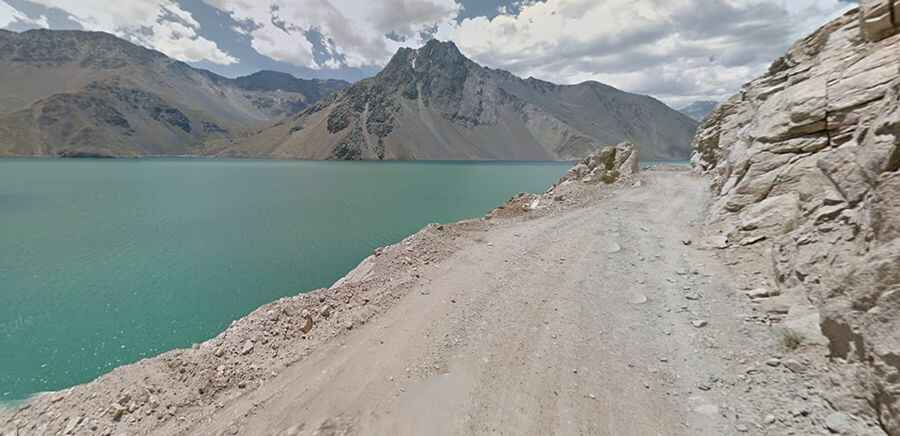The Wild Road to Embalse El Yeso
Embalse El Yeso del Cajón del Maipo is a turquoise reservoir at an elevation of 2.605m (8,546ft) above sea level, located in the Santiago Metropolitan Region of Chile.

Where is Embalse El Yeso?
The reservoir is located in the foothills of the Andes Mountain Range. Built in 1964, the reservoir was created by the damming of the Yeso River. At this altitude, there is no smog or pollution, so the skies are crystal clear and a deep blue color as well. Its turquoise waters are suitable for fishing and windsurfing.
Is the road to Embalse El Yeso unpaved?
The road to the reservoir is totally unpaved but navigable by all passenger vehicles in dry weather. It’s called Camino Embalse El Yeso.
How long is the road to Embalse El Yeso?
Starting at San Gabriel, the road to the dam is 23 km (14.29 miles) long. The terrain is like something out of Star Wars.
What to expect on the road to Embalse El Yeso?
The hazardous stretch of mountain road to the reservoir is really defiant, featuring hairpin turns, narrow parts, and steep sections. Starting at San Gabriel, the elevation gain is 1.300 meters. The average gradient is 5.65%. This dirt road with dicey bends and a high drop-off has humbled many egos. With little vehicular traffic, it meanders along the edge of the hills and along a path which was won at the mountain. The dicey nature of the road becomes apparent when you drive around a bend and come head-to-head with a car that is trying to share what is really a one-lane road.
Is the road to Embalse El Yeso challenging?
Don't drive this road alone and/or in bad weather. The narrow, winding mountain road frequently verges on ‘nerve-wracking’, as the dramatic drops to the canyon floor a few hundred meters below will cause your heart to jump to your mouth a few times. Visibility can be quite low at times, so always drive slowly and watch out for cars coming in the opposite direction, making their way back down the mountain. The most challenging part of the drive runs along the southern shore of the reservoir.
Is the road to Embalse El Yeso open?
Similar to the Himalayan roads, the amount of snowfall dictates the reservoir's accessibility. Although you may need a 4x4 during the winter months, it is still possible to get fairly close to the reservoir's western edge if there is little snow. In the event of heavier snowfall, it can be totally impassable. Remember that the weather can change dramatically and rapidly, especially in Autumn, Winter, and Spring. Rain, fog, or the feared "White Wind" (a strong storm of wind, ice, and snow) can put your life in serious danger, so check out the weather forecast for the time you intend to stay.